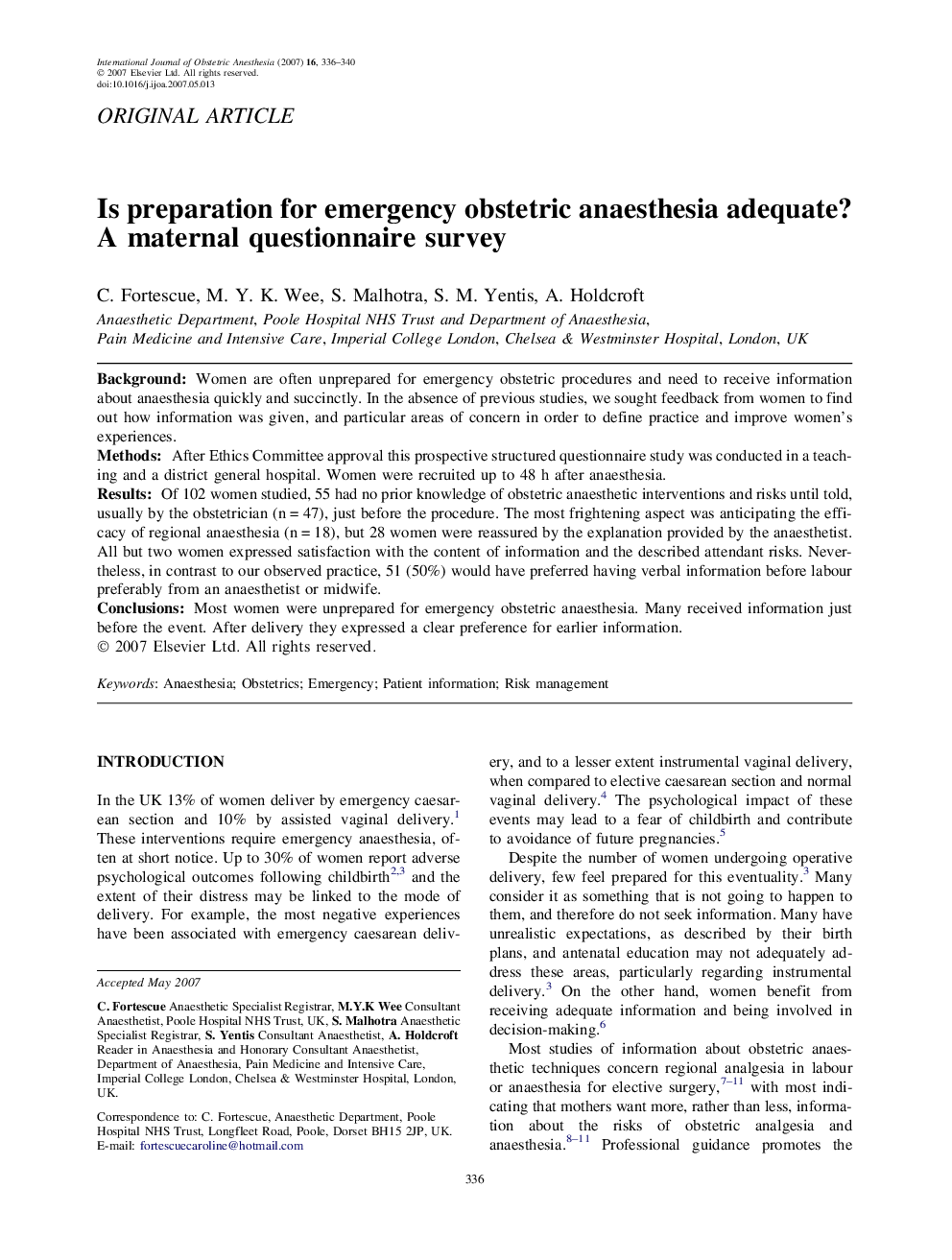| Article ID | Journal | Published Year | Pages | File Type |
|---|---|---|---|---|
| 2758557 | International Journal of Obstetric Anesthesia | 2007 | 5 Pages |
BackgroundWomen are often unprepared for emergency obstetric procedures and need to receive information about anaesthesia quickly and succinctly. In the absence of previous studies, we sought feedback from women to find out how information was given, and particular areas of concern in order to define practice and improve women’s experiences.MethodsAfter Ethics Committee approval this prospective structured questionnaire study was conducted in a teaching and a district general hospital. Women were recruited up to 48 h after anaesthesia.ResultsOf 102 women studied, 55 had no prior knowledge of obstetric anaesthetic interventions and risks until told, usually by the obstetrician (n = 47), just before the procedure. The most frightening aspect was anticipating the efficacy of regional anaesthesia (n = 18), but 28 women were reassured by the explanation provided by the anaesthetist. All but two women expressed satisfaction with the content of information and the described attendant risks. Nevertheless, in contrast to our observed practice, 51 (50%) would have preferred having verbal information before labour preferably from an anaesthetist or midwife.ConclusionsMost women were unprepared for emergency obstetric anaesthesia. Many received information just before the event. After delivery they expressed a clear preference for earlier information.
